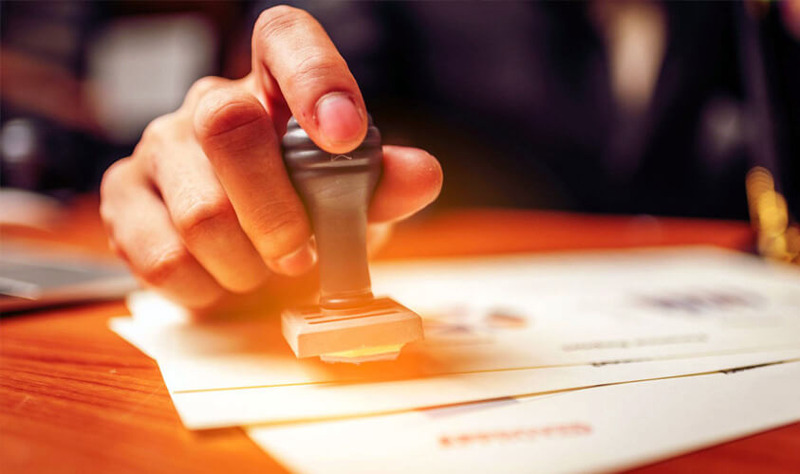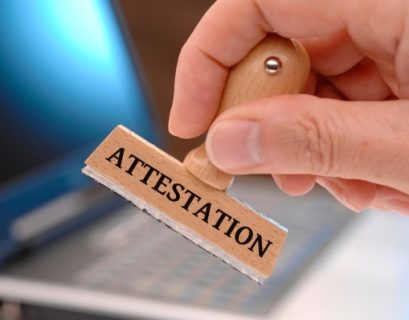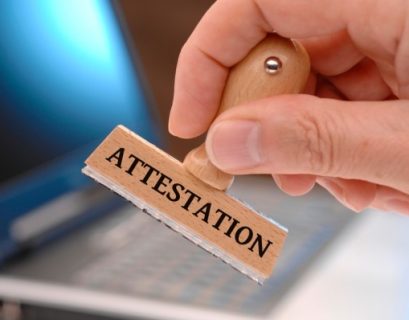Marriage certificate attestation is a crucial process for individuals seeking to validate their marital status for official, legal, or personal reasons, especially when moving or traveling abroad. In India, the process can be straightforward if you know the steps and the right channels to follow. This guide provides expert tips to ensure that your marriage certificate attestation in India is fast, easy, and hassle-free.
What is Marriage Certificate Attestation?
Marriage certificate attestation is the process of verifying a marriage certificate by authorized government departments to prove its authenticity and validity. This certification is often required when applying for a visa, work permit, or residency in a foreign country, especially in the Gulf Cooperation Council (GCC) countries, the United States, Canada, and Europe. Attestation confirms that the marriage is recognized by the state and the certificate is genuine.
Why is Marriage Certificate Attestation Necessary?
- Visa and Immigration: Many countries require attested marriage certificates to issue dependent visas, family visas, or resident permits. This helps verify the relationship between spouses.
- Legal Formalities: Attested documents are often needed to carry out legal procedures, including property disputes, name changes, or claiming family benefits.
- Employment: Some countries require attested certificates for employment purposes, especially when the job involves relocation of family members.
- Educational Purposes: For pursuing higher education or applying for scholarships, an attested marriage certificate may be required to validate marital status.
Step-by-Step Process for Marriage Certificate Attestation in India
The marriage certificate attestation process involves multiple stages and various government departments. Understanding each step and preparing the necessary documents can save time and effort.
1. Obtain a Certified True Copy of Your Marriage Certificate
The first step is to obtain a certified true copy of your marriage certificate. This copy should be issued by the local issuing authority where the marriage was registered. Ensure that all details are correctly mentioned on the certificate, including names, dates, and signatures.
2. Notary Attestation
The initial level of attestation is done by a public notary in India. The notary public verifies the document, checks the authenticity of the signatures, and certifies it with a notary stamp and signature. Notarization is the basic level of attestation that establishes the authenticity of the document for further attestation.
3. Home Department Attestation
After notarization, the document needs to be attested by the Home Department of the respective state. The Home Department attestation verifies that the marriage certificate was issued within the state and is authentic. This process may vary slightly from state to state, but typically, it involves submitting the original certificate, a copy of the certificate, and a request letter for attestation.
4. Ministry of External Affairs (MEA) Attestation
The next step is to get the certificate attested by the Ministry of External Affairs (MEA) in India. The MEA attestation is mandatory for documents to be recognized internationally. You need to submit the original marriage certificate, the copies, and a passport copy of the certificate holders. The MEA will verify and attest the certificate with their stamp and signature.
5. Embassy or Consulate Attestation
The final step in the attestation process is getting the document attested by the embassy or consulate of the country where you intend to use the certificate. This attestation confirms that the document is valid for use in that particular country. Requirements for embassy attestation vary depending on the country, so it’s advisable to check with the respective embassy for specific instructions.
Tips for Fast and Easy Marriage Certificate Attestation
Navigating through multiple levels of attestation can seem daunting. However, the following expert tips can help streamline the process and avoid unnecessary delays:
1. Start Early
Begin the attestation process as soon as you know you will need an attested marriage certificate. The entire process can take a few weeks, depending on various factors, including the processing time of each department and any unforeseen delays. Starting early ensures that you have ample time to complete each step without stress.
2. Prepare All Required Documents
Before you begin, make a checklist of all the documents required at each stage of the attestation process. Commonly required documents include:
- Original marriage certificate
- Photocopies of the marriage certificate
- Passport copies of both spouses
- A request letter for attestation
- Authorization letter (if using an attestation service)
Having all the required documents prepared in advance can save time and prevent delays due to missing paperwork.
3. Seek Professional Assistance
Hiring a professional attestation service can simplify the process. These services are experienced in handling document attestation and can navigate the bureaucracy efficiently. They ensure that your documents are correctly submitted and follow up with the relevant departments. While this involves a fee, it can save significant time and reduce the hassle involved.
4. Check for Updates and Requirements
Attestation requirements and procedures can change periodically. It’s essential to stay updated on the current requirements of the attestation process and the specific embassy requirements of the destination country. Regularly check the websites of the MEA and the respective embassies for updates or changes in the process.
5. Verify the Correctness of Documents
Ensure that all details on the marriage certificate and other documents are accurate and match the information in your passports or other identification documents. Inconsistencies or errors can lead to rejection or delays. Double-check names, dates, places, and spellings before submitting your documents for attestation.
6. Follow Up Regularly
After submitting your documents for attestation, follow up regularly with the concerned departments. This helps track the progress of your application and ensures that any issues are promptly addressed. Regular follow-ups can expedite the process and reduce the waiting time.
7. Keep Multiple Copies of Attested Documents
Once your marriage certificate is attested, make several copies of the attested document. You may need to submit attested copies to various departments or authorities, and having multiple copies on hand can be convenient. Ensure that the copies are clear and legible, with all the stamps and signatures visible.
8. Utilize Online Services
Many states and departments in India offer online attestation services that can make the process more efficient. Check if the local issuing authority or the Home Department provides online submission and tracking options. Online services can reduce the need for physical visits and streamline the process.
9. Understand the Legalization Process
In some cases, legalization may be required instead of attestation. Legalization is a similar process but involves additional verification by the foreign country’s consulate or embassy. Understand the specific requirements of the country where you intend to use the certificate to determine if attestation or legalization is needed.
10. Stay Calm and Organized
The attestation process can sometimes be time-consuming and involve bureaucratic hurdles. Stay calm and organized throughout the process. Keep all your documents organized, maintain a record of all submissions, and keep copies of receipts or acknowledgments. Being organized helps in managing the process effectively and reduces stress.
Common Challenges in Marriage Certificate Attestation
While the attestation process is straightforward, individuals may encounter certain challenges. Being aware of these challenges can help you prepare better and avoid potential issues:
- Document Errors: Errors in the marriage certificate, such as incorrect names or dates, can lead to rejection during the attestation process. Always verify the accuracy of the certificate before submission.
- Delays in Processing: Processing times can vary depending on the workload of the concerned departments. Delays can occur due to high demand, public holidays, or unforeseen circumstances. Factor in potential delays when planning for attestation.
- Changing Requirements: Attestation requirements can change, and different countries may have specific requirements for document attestation. Always verify the latest requirements with the MEA and the destination country’s embassy.
- Miscommunication: Miscommunication or lack of information can lead to incomplete submissions or missed steps in the process. Seek clarity and confirm all details before proceeding with each step.
- Legal Complications: In cases where a marriage was registered under special circumstances or involves foreign nationals, additional legal procedures may be required. Consult legal experts if you encounter complexities during attestation.
Conclusion
Marriage certificate attestation is an essential process for validating your marital status, especially for individuals planning to move abroad. By understanding the steps involved and following expert tips, you can ensure that the attestation process is fast, easy, and hassle-free. Start early, prepare all necessary documents, seek professional assistance if needed, and stay organized throughout the process. With the right approach, you can obtain your attested marriage certificate without unnecessary delays, enabling you to focus on your plans and opportunities ahead.
In a globalized world, where mobility across borders is common, having properly attested documents ensures that your marital status is recognized and respected, providing peace of mind and legal security in your new endeavors.


















